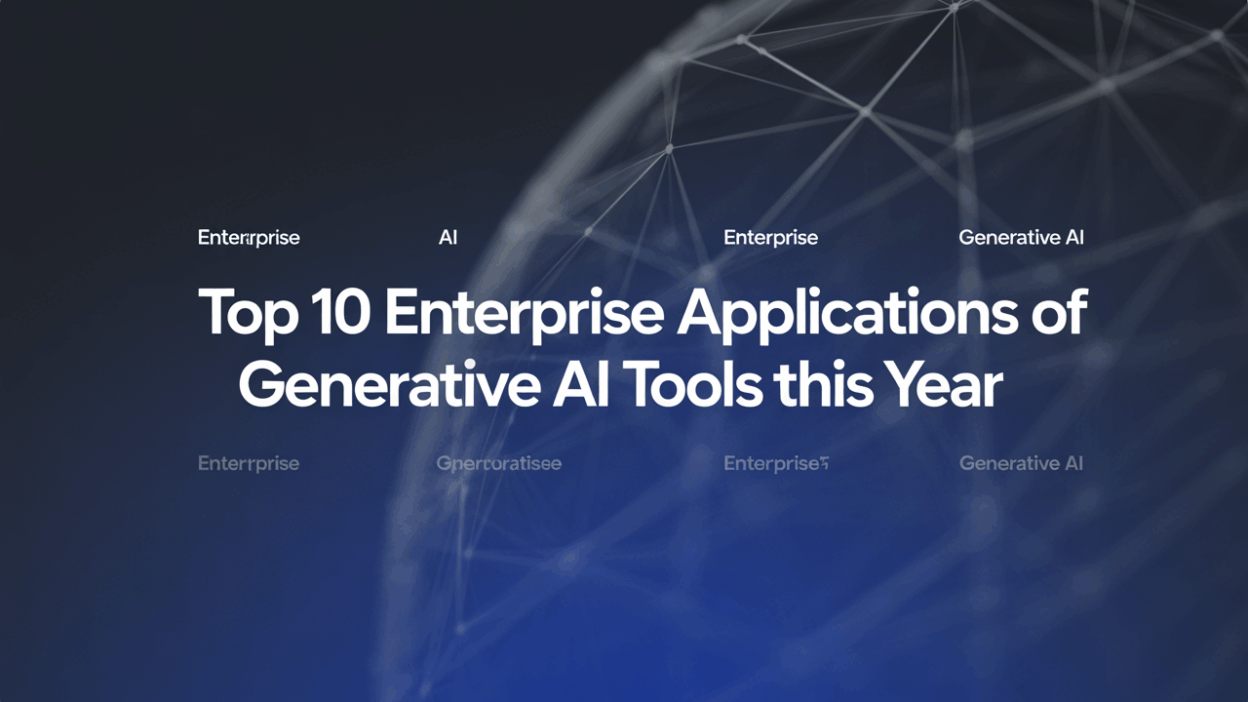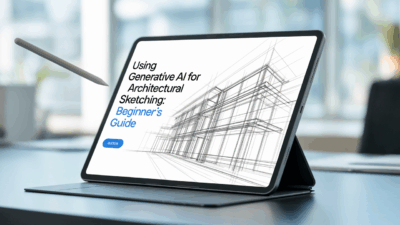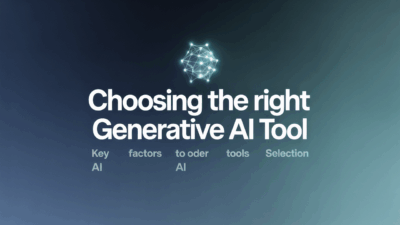Generative AI has rapidly become a cornerstone of modern enterprise operations, driving innovation and efficiency across industries. As businesses continue to explore the transformative potential of this technology, certain applications have emerged as particularly impactful in 2025. Below are the top 10 enterprise applications of generative AI tools that are shaping the business landscape this year.
1. Customer Issue Resolution
One of the most prevalent uses of generative AI in enterprises is resolving customer issues. Approximately 35% of enterprise generative AI projects focus on deploying AI-powered systems to handle customer inquiries, streamline support workflows, and improve satisfaction levels . These tools can analyze queries in real time and provide accurate, context-aware responses.
2. Fraud Detection and Security
Generative AI plays a critical role in identifying fraudulent activities by detecting anomalies in data patterns. This application enhances cybersecurity measures, helping organizations proactively mitigate risks and safeguard sensitive information .
3. Automated Content Creation
Content creation has seen a significant transformation with generative AI automating tasks like blog writing, social media posts, and product descriptions. Tools such as ChatGPT and Google’s Gemini are widely used to generate high-quality content efficiently, reducing manual effort while maintaining brand consistency .
4. Personalized Marketing Campaigns
Businesses are leveraging generative AI to tailor marketing efforts to individual preferences. By analyzing consumer behavior, these systems create personalized advertisements, emails, and recommendations that resonate with target audiences, leading to higher engagement and conversion rates .
5. Adaptive Product Design
Generative AI enables rapid prototyping and design iteration by creating customized product designs based on user feedback and market trends. This capability allows companies to innovate faster and meet evolving customer demands effectively .
6. Rapid Software Development
With tools like GitHub Copilot, developers can accelerate coding tasks using AI-generated suggestions. This application significantly reduces development time, improves code quality, and fosters collaboration among teams .
7. SEO Optimization
Generative AI tools assist in optimizing content for search engines by generating keyword-rich text and analyzing performance metrics. This ensures higher visibility and drives organic traffic to websites .
8. AI-Powered Video Creation
Synthesia, an AI video platform, empowers enterprises to produce professional-quality videos in multiple languages without requiring extensive production resources. This tool is revolutionizing how companies communicate internally and engage externally .
9. Audio and Video Generators
Enterprises are increasingly adopting generative AI tools for creating audio and video content, including voiceovers, explainer videos, and training materials. These tools simplify multimedia production, enabling businesses to scale their output seamlessly .
10. Content Performance Analysis
Beyond creation, generative AI also evaluates content effectiveness by analyzing engagement metrics and audience reactions. This insight helps marketers refine strategies and optimize future campaigns for maximum impact .
Conclusion
The enterprise adoption of generative AI continues to grow, driven by its ability to enhance productivity, reduce costs, and unlock new opportunities. From customer service to software development and content creation, these tools are reshaping how businesses operate in 2025. As generative AI evolves, its influence on enterprise innovation will only deepen, making it an indispensable part of digital transformation strategies moving forward.



